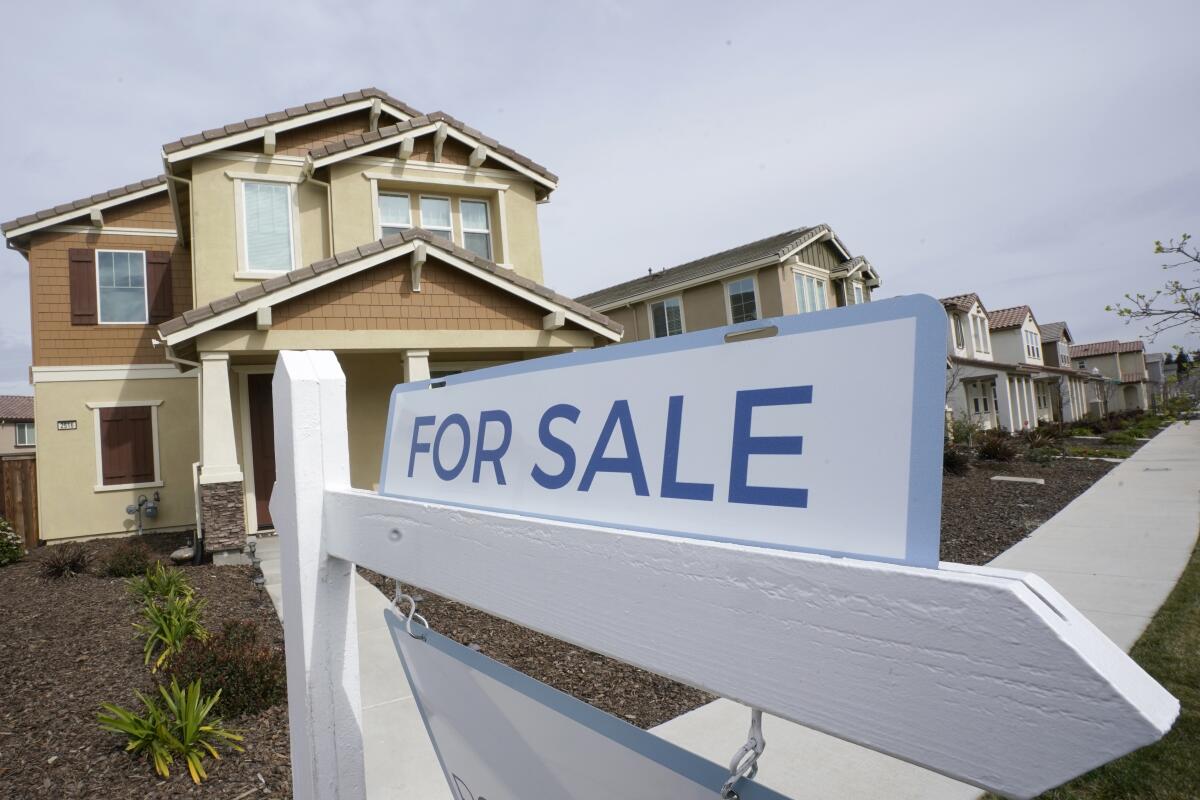Yellen announces efforts to boost the housing supply as high prices create a crunch

- Share via
WASHINGTON — The Biden administration announced new steps to increase access to affordable housing as still-high prices on groceries and other necessities and high interest rates have dramatically pushed up the cost of living in the post-pandemic-emergency years.
Treasury Secretary Janet L. Yellen promoted the investments during a visit Monday to Minneapolis. They include providing $100 million through a new fund to support affordable housing financing over the next three years, boosting the Federal Financing Bank’s financing of affordable housing and other measures.
The increased attention to home prices comes as the housing crunch becomes a growing issue in this year’s general election campaign.
“We face a very significant housing supply shortfall that has been building for a long time,” Yellen said in a speech in the afternoon. “This supply crunch has led to an affordability crunch.”
Yellen said the Democratic administration is “pursuing a broad affordability agenda to address the price pressures that families have been feeling.”
Both homebuyers and renters are facing increasing housing costs that skyrocketed after the pandemic shutdowns. According to the Case-Shiller 20-City Composite Home Price Index, home prices increased by 46% from March 2020 to March 2024. A new Treasury analysis shows that over the ;ast two decades, housing costs have been rising faster than incomes.
Meanwhile, sales of previously occupied U.S. homes fell in May for the third straight month as rising mortgage rates and record-high prices discouraged many prospective homebuyers during what’s traditionally the housing market’s busiest period of the year.
For low-income Americans, statistics from the National Low Income Housing Coalition show that nationally there is a shortage of more than 7 million affordable homes for the more than 10.8 million extremely low-income U.S. families. And there is no state or county in the country where a renter working full-time at minimum wage can afford a two-bedroom apartment, according to the group.
It is becoming a crisis in some cities. For instance, on Martha’s Vineyard in Massachusetts, the cost of housing has become a public safety issue as it becomes difficult to attract and retain correctional officers and 911 dispatchers.
President Biden and presumptive GOP nominee Donald Trump have put forward a variety of ideas on how to make life more affordable for average Americans, including Trump’s proposal to make tips tax-free for workers and Biden’s plan to cut student loan payments. A representative from the Trump campaign did not respond to a request for comment.
But increased housing costs have some economists predicting the crunch may not end until the Federal Reserve lowers its key interest rate, which remains at 5.3%.
Sal Guatieri, a senior economist at BMO Capital Markets Economic Research, wrote Friday that little change is expected in the housing market “until the Fed reduces policy rates.”
Diane Yentel, president and chief executive of the National Low Income Housing Coalition, said the White House has made efforts to prevent evictions and address the housing crisis, “but there is much more work still to be done.”
Yentel said congressional action is needed to “quickly enact transformative and badly needed housing investments. Only through a combination of administrative action and robust federal funding can the country truly resolve its affordable housing crisis.”
In her speech, Yellen called on Congress to pass Biden’s proposed budget, released in March.
The budget calls on Congress to provide a tax credit for first-time homebuyers and includes a plan to build more than 2 million homes. It would expand the low-income housing tax credit.
The Biden administration has taken other steps to boost the housing supply, including launching a multiagency effort to encourage states and cities to convert more empty office buildings into housing units, with billions of federal dollars available to help spur such transitions.
In July 2023, the Department of Housing and Urban Development provided communities with $85 million to reduce barriers to affordable housing, such as zoning restrictions that in some places have become a hurdle to increasing the supply and density of affordable housing.
Hussein writes for the Associated Press
More to Read
Inside the business of entertainment
The Wide Shot brings you news, analysis and insights on everything from streaming wars to production — and what it all means for the future.
You may occasionally receive promotional content from the Los Angeles Times.










